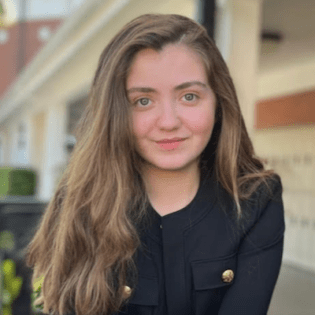 This past October, Florida Writers Association (FWA) was pleased to announce the winners for the Royal Palm Literary Awards (RPLA) at a special banquet during the Florida WritersCon conference. RPLA is a prestigious writing competition that recognizes extraordinary writing and is exclusive to FWA members. The winners represented over 28 genres and included both published and unpublished works.
This past October, Florida Writers Association (FWA) was pleased to announce the winners for the Royal Palm Literary Awards (RPLA) at a special banquet during the Florida WritersCon conference. RPLA is a prestigious writing competition that recognizes extraordinary writing and is exclusive to FWA members. The winners represented over 28 genres and included both published and unpublished works.
As part of the annual RPLA Showcase, FWA interviewed the winners of the grand awards (Published Book of the Year; Unpublished Book of the Year; Best Children’s Book; and the Candice Coghill Memorial Award for Youth) to learn more about their writing journey, advice for other writers, and favorite things to do in Florida.
Candice Coghill Memorial Award for Youth: Isabel Mestey-Colon
Isabel Mestey-Colon is a current junior and member of the Florida Writers Association Youth (FWAY) program. She has a fascination for all things historical and mythological. Whether through verse, paint, or song she seeks to bring new perspectives to commonly told tales.
FWA is proud to support youth members and their writing.The Candice Coghill Memorial Award for Youth was established in memory of Candice Coghill, who was an active member of Florida Writers Association, a youth writing advocate, and a tireless contributor to the writing community. FWA connected with Isabel to learn more about her work, what it felt like to receive this prestigious award, and her unique writing journey.
Tell us about your poem and what inspired you to write it.
To tell the truth, I’ve always been interested in Greek mythology. While I did grow up reading the famous Percy Jackson series and the rest of Riordan’s books, I began reading the original plays and epics in high school. Reading–and realizing–that there were so many different versions of a myth got me interested in how mythology impacted our understanding of values both in older times and the present.
The idea for Icarus was inspired by Oscar Wilde’s famous quote “Never regret thy fall, O Icarus of the fearless flight / For the greatest tragedy of them all / Is never to feel the burning light” plus a few more works focusing on Icarus as a victor while scouring the Internet on one of my Greek myth research wormholes.
What did it feel like to hear you won the Candice Coghill Memorial Award for Youth?
Definitely surprised. It’s one thing to be satisfied with how a piece came out, but it’s pretty exciting to realize that other people liked it too.
Can you tell us about your writing journey?
Definitely! The process for writing this poem broke with how I usually write because I tend to outline my poems and stories beforehand. My first draft for the poem was written in a single sitting after an event where I needed to express myself on paper. Clearly, I’m not Icarus, but the myth represents ideas of victory, loss, ambition, and hubris that I wanted to explore.
The majority of the middle and final stanzas were written in this mad dash. After a few days, I came back to the piece, felt excited with its direction, and began tightening the narrative (Icarus’ transition from the underworld to the sky), honing in which myth allusions fit best, and playing a lot with consonance. There were times when I started with a completely blank document and pretty much “began anew” with portions of the poem to help this process.
The final poem had about ten drafts. I constantly shifted between trying to make the poem follow conventional standards in meter and stress or letting it remain in the free verse state it was originally written in. In the end, I decided that free verse helped pack more emotional impact.
What advice would you give to other young writers?
Mix things up every once in a while. As I mentioned previously, I tend to be more of the story map and character sheet type of writer and did not do so for this piece. I think, as writers, we can get hung up on the mentality of, “well, this is how I’ve done it in the past so I’ll keep on doing it.”
Tried and true methods have merit but so too does experimentation. Try breaking away from your usual writing genre, style, or method of writing. Different places to write in or switching between long-hand and typed drafts can have an impact too. This isn’t to say forget everything you’ve ever learned but more to argue that mixing things up can lead to surprising results.
Something fun: what’s your favorite thing to do in Florida?
Is it too cliché to say enjoy the beach? I mean, so much of the rest of the country is freezing during winter, and here we are, surrounded by water and balmy weather.

claudia Chianese
Much wisdom and accomplishment from youth, congratulations Isabel.